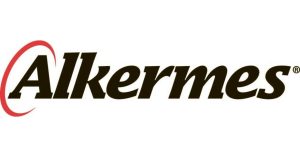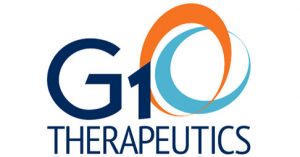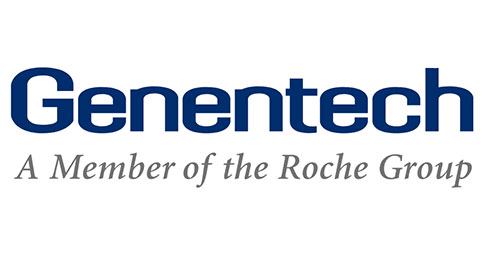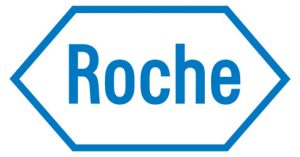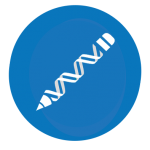Analysis of single-cell RNA sequencing (scRNA-seq) data gives the ability to study gene expression at a cellular level. This reveals information and variation that would otherwise be masked when considering a sample as a whole, as in the case of bulk RNAseq.
What We Offer
Fios Genomics offers established, cost-efficient and rapid turnaround analysis services for single-cell gene expression data from a range of platforms. These include 10X Genomics, DropSeq, Parse and SMART-Seq2 as well as others. We can receive single-cell data in various formats for analysis such as raw FastQ files, aligned BAM/SAM files, and raw count matrices. We have established single-cell analysis pipelines using a variety of available methods and tools. This allows us to offer bespoke analysis of scRNA-seq data using the most appropriate methods for the data and the research questions of the project.
Our single-cell data analyses may include the following:
Identification of cell types/states
Clustering of cells to identify cell populations with distinct gene expression profiles. If possible, annotation of the identified clusters into known cell types. Association of identified clusters with clinical metadata.
Differential expression analysis
Identification of differentially expressed genes between cell types/states.
Functional enrichment analysis
In order to assess if the sets of differentially expressed genes in each cell population are associated with specific functions/pathways.
Cell-cell communication
Inference of communication between cell types based on a curated database of known ligand-receptor interactions.
Trajectory analysis
To study the development and differentiation of cell types and to identify genes associated with specific lineages or developmental states.
Analysis of TCR/BCR data
Clonotype construction using immune profiling sequencing data and testing of associations between clonotypes and identified cell types or clinical metadata of the cells.
Multimodal analysis
Integration of scRNA-seq data with other modalities, such as hashtag oligonucleotides, chromatin accessibility, or cell surface protein abundance data (e.g. CITE-Seq).
Benefits of Working with Fios Genomics
There are challenges in the analysis of scRNA-seq data due to both technical and biological factors. The quality of the data changes across platforms as well as across tissues and cell types. Thus, cell quality control requires manual selection of filtering thresholds based on expert knowledge.
Another major challenge is the presence of batch effects due to single-cell data sets being processed/sequenced in different batches or even with different platforms. Although there are various batch correction methods available, these do not work well for all cases. However, at Fios Genomics we have the expertise and pipelines in place to choose the most appropriate methods depending on the technical and biological characteristics of the data we analyse.
Dedicated Bioinformatician
A dedicated bioinformatician, backed by an experienced bioinformatics team, will curate all data, identify the most appropriate statistical approach to take and provide a biological interpretation of results
Interactive Data Analysis Report
Receive a searchable data analysis report that includes interactive visualisations of the data. Our reports are internally peer-reviewed and include analysis methods and results (particularly helpful if you plan to publish your research results)
Post-Report Follow-Up
Upon receipt of our data analysis report, we arrange a review call so that your project’s dedicated bioinformatician can talk you through the results and answer any questions you have about the report
Dedicated Project Manager
Your dedicated Project Manager will act as your single point of contact throughout the project. They will ensure everything from data transfer to report delivery runs smoothly and efficiently for you
Large Capacity Computing
When you choose Fios Genomics, you benefit from our large capacity computing and secure data storage facilities, where we store all your raw data, analysed data and your data analysis report
Single-Cell Data Analysis Applications
There are many useful applications of single-cell analysis, such as:
scRNA-seq data analysis can be used to classify the cells into distinct types
This reveals information about the cell types present and how those cell types differ in terms of expression. Generally, this is done following dimension reduction and clustering using tSNE or UMAP methods. This can also help identify novel cell subpopulations. Functional enrichment can be used to identify enriched pathways in these cell populations.
For multiple samples, scRNA-seq facilitates comparisons of expression between equivalent cell types of different samples
In order to measure the effect of a treatment, condition, or outcome as well as comparisons of cell type composition of samples from multiple individuals to understand variation of cellular composition at a population scale. Differences in gene expression or abundance that are associated with disease or treatment can reveal cell populations that are potential candidates for targeted therapy, immunotherapy, etc.
Trajectory analysis
To study the proliferation and differentiation over time and identify genes being differentially expressed within and between the identified lineages.
Cell-cell communication inference based on ligand-receptor interactions between all cell subtypes
To identify interactions between cell types and detect direct and indirect effects of treatment, condition, etc.
Immune receptor profiling data analysis
In order to understand the TCR, BCR, or Immunoglobulin (Ig) clonotype composition of samples and test their association with identified cell types, conditions, etc.
Our Experience in Single-Cell Analysis
Below is a small selection of projects where we have successfully helped our clients:
- Single-cell RNAseq analysis of a publicly available dataset, where normal and malignant epithelial cells were identified from transcriptome profiles of ~200,000 single cells from non-small cell lung cancer (NSCLC) patients.
- The evaluation of gene expression changes in response to treatment in alpha, beta, delta and ductal cells from pancreas tissue samples.
- Association of gene expression and functional pathways with immune cell subtypes in peripheral blood mononuclear cells (PBMCs).
- Characterisation of CD8-T cell subtypes in mouse spleen based on combination of single-cell V(D)J and 5′ Gene Expression data.
- Analysis of mouse fetal liver macrophages to study the effect of omega 3 fatty acid docosahexaenoic acid (DHA) treatment.
- scRNA-seq data analysis of T cells from human gut samples to study the effect of Crohn’s disease and ulcerative colitis on the abundance and gene expression of CD4-T cell subtypes compared to healthy controls.
- Analysis of human retinal organoids at different developmental stages to characterise the cell type composition.
Our Reports
Our analysis reports come as an HTML link hosted on our secure server. The secure link contains a password-protected HTML document that is clickable, searchable, and dynamic. This format allows you to easily interrogate and explore your data. Our reports always include all analysis methods, tools and thresholds. In addition, to facilitate sharing of key results in alternative formats such as presentations and posters, all figures in our reports can be downloaded as either PDFs or PNGs, and all tables can be downloaded in tabular data formats.
Example Single-Cell Data Analysis Report
To demonstrate what you can expect from a Fios Genomics single-cell data analysis report, we have an example report available: Using single-cell RNA-seq to define immune cell subsets and their gene expression signatures in healthy donor PBMCs. This data analysis report describes the analysis of a single-cell RNA sequencing (scRNA-seq) dataset containing peripheral blood mononuclear cell (PBMC) gene expression profiles, sampled from a healthy donor. To view this report contact us and ask for our ‘scRNA-seq’ example report.
Our Testimonials
Working with Fios Genomics was a pleasure from beginning to end, with my immensely helpful point of contact, Eleanore Irvine, always ensuring all the details were attended to. The final report, produced under enormous time pressure, was still one of the clearest, most comprehensible and complete statistical analyses I have seen, thanks to the talented staff. I will be happy to use Fios Genomics’ services again in future.
Companies We Have Worked With
Request a Quote


